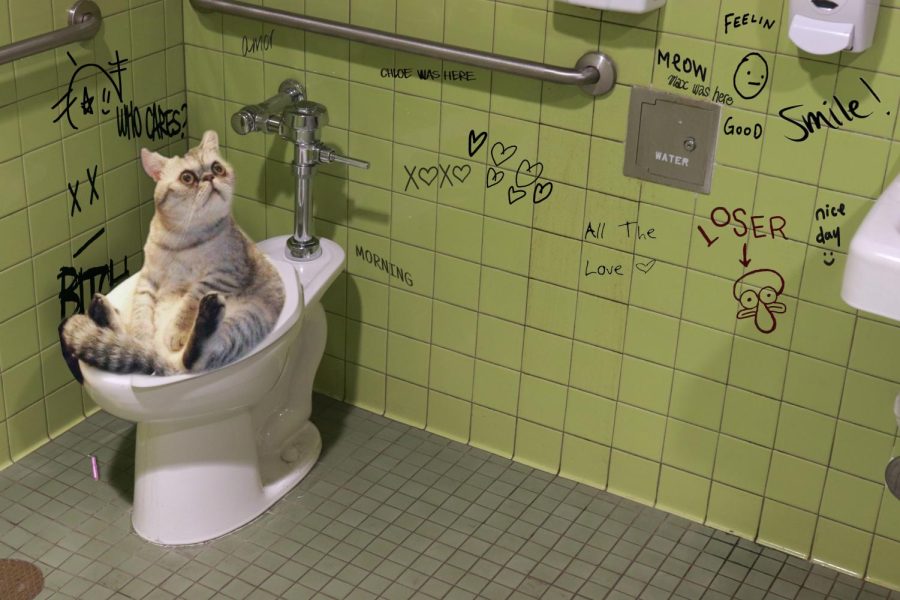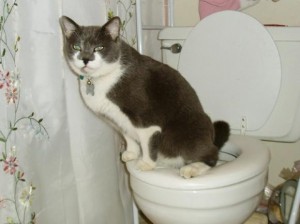Why Flushing Cat Poop Down Your Toilet Can Cause Problems - Tips for Proper Handling
Why Flushing Cat Poop Down Your Toilet Can Cause Problems - Tips for Proper Handling
Blog Article
Are you currently hunting for advise about Don’t flush cat feces down the toilet?

Introduction
As feline proprietors, it's necessary to bear in mind just how we get rid of our feline pals' waste. While it might seem hassle-free to flush cat poop down the bathroom, this method can have harmful repercussions for both the setting and human wellness.
Alternatives to Flushing
The good news is, there are more secure and a lot more responsible methods to deal with pet cat poop. Think about the adhering to alternatives:
1. Scoop and Dispose in Trash
The most usual method of disposing of pet cat poop is to scoop it right into a naturally degradable bag and throw it in the trash. Make certain to utilize a devoted litter inside story and get rid of the waste quickly.
2. Use Biodegradable Litter
Select naturally degradable cat litter made from products such as corn or wheat. These litters are environmentally friendly and can be securely gotten rid of in the garbage.
3. Bury in the Yard
If you have a lawn, think about hiding cat waste in a marked location far from vegetable gardens and water resources. Make sure to dig deep enough to stop contamination of groundwater.
4. Install a Pet Waste Disposal System
Purchase a pet waste disposal system particularly made for feline waste. These systems make use of enzymes to break down the waste, minimizing smell and environmental effect.
Health and wellness Risks
Along with ecological problems, flushing pet cat waste can additionally pose health dangers to human beings. Cat feces may include Toxoplasma gondii, a bloodsucker that can cause toxoplasmosis-- a potentially extreme health problem, especially for expectant women and people with damaged immune systems.
Ecological Impact
Purging feline poop presents damaging pathogens and bloodsuckers into the supply of water, positioning a considerable risk to marine environments. These contaminants can adversely affect marine life and compromise water top quality.
Conclusion
Liable family pet possession extends beyond supplying food and shelter-- it also includes appropriate waste monitoring. By avoiding flushing feline poop down the bathroom and going with alternative disposal methods, we can reduce our environmental impact and safeguard human wellness.
Why Can’t I Flush Cat Poop?
It Spreads a Parasite
Cats are frequently infected with a parasite called toxoplasma gondii. The parasite causes an infection called toxoplasmosis. It is usually harmless to cats. The parasite only uses cat poop as a host for its eggs. Otherwise, the cat’s immune system usually keeps the infection at low enough levels to maintain its own health. But it does not stop the develop of eggs. These eggs are tiny and surprisingly tough. They may survive for a year before they begin to grow. But that’s the problem.
Our wastewater system is not designed to deal with toxoplasmosis eggs. Instead, most eggs will flush from your toilet into sewers and wastewater management plants. After the sewage is treated for many other harmful things in it, it is typically released into local rivers, lakes, or oceans. Here, the toxoplasmosis eggs can find new hosts, including starfish, crabs, otters, and many other wildlife. For many, this is a significant risk to their health. Toxoplasmosis can also end up infecting water sources that are important for agriculture, which means our deer, pigs, and sheep can get infected too.
Is There Risk to Humans?
There can be a risk to human life from flushing cat poop down the toilet. If you do so, the parasites from your cat’s poop can end up in shellfish, game animals, or livestock. If this meat is then served raw or undercooked, the people who eat it can get sick.
In fact, according to the CDC, 40 million people in the United States are infected with toxoplasma gondii. They get it from exposure to infected seafood, or from some kind of cat poop contamination, like drinking from a stream that is contaminated or touching anything that has come into contact with cat poop. That includes just cleaning a cat litter box.
Most people who get infected with these parasites will not develop any symptoms. However, for pregnant women or for those with compromised immune systems, the parasite can cause severe health problems.
How to Handle Cat Poop
The best way to handle cat poop is actually to clean the box more often. The eggs that the parasite sheds will not become active until one to five days after the cat poops. That means that if you clean daily, you’re much less likely to come into direct contact with infectious eggs.
That said, always dispose of cat poop in the garbage and not down the toilet. Wash your hands before and after you clean the litter box, and bring the bag of poop right outside to your garbage bins.
https://trenchlesssolutionsusa.com/why-cant-i-flush-cat-poop/

We were made aware of that report on Can You Flush Cat Poop Down The Toilet? from a good friend on a different web address. Are you aware of somebody who is intrigued by the niche? Take a moment to share it. We recognize the value of reading our article about How to Dispose of Cat Poop and Litter Without Plastic Bags.
Click Here Report this page